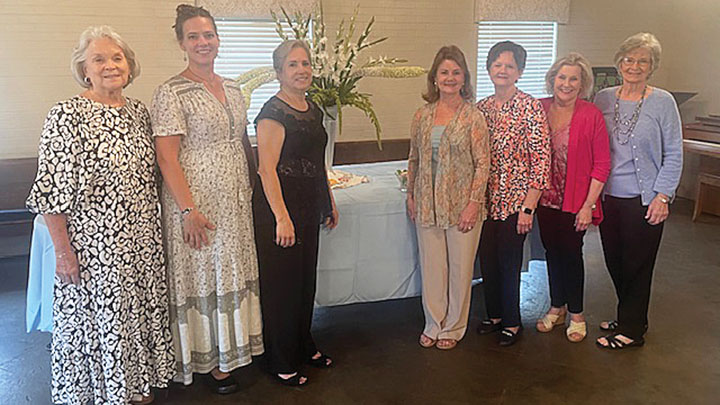Secretary of State urges use of two voter machines
Published 5:00 am Monday, June 26, 2006
A move by election officials in some counties to place only onevoting machine at a precinct for Tuesday’s Democratic runoff hassome worried that candidates could determine how they voted.
Jay Eads, assistant secretary of state for elections, said thatalthough such a situation is possible, it is unlikely. However, theSecretary of State’s office has “strongly” encouraged a minimum oftwo machines at each voting precinct.
“It is possible that someone might, in a recount effort, be ableto match up people with votes,” Eads said. “Most people haven’tthought about the privacy issues (of having one machine at aprecinct). It is very important that is considered.”
Trending
The voting machines electronically randomize ballots whenordered to print them out, Eads said, but the recorded paper trailis linear, meaning people could be matched with votes bydetermining the order they voted from the sign-in sheet andcounting down the votes cast on the printout.
Fortunately, he said, the paper trail is a sealed item that canonly be opened by court order.
“No one can request to look at the tape,” Eads said. “It’s aprocess of law. Not everyone could do it.”
Eads said he is contacting election officials in severalcounties with intentions of using only one voting machine perprecinct to urge them to reconsider.
Lincoln County Circuit Clerk Terry Lynn Watkins said electioncommissioners here originally planned to have only one machine atprecincts close to the courthouse because they could rush anothermachine over quickly should one fail. However, after speaking withEads Friday they have chosen to place two machines at eachprecinct.
“We honestly had not thought of that,” Watkins said, referringto privacy concerns.
Trending
The placement of two machines at outlying precincts was never indoubt, Watkins said, because the distance would prevent a rapidresponse by election officials to rush a second machine there.
In Lawrence County, however, Circuit Clerk Cindy Stokes saidprecincts in Districts Two, Three and Four would only have onemachine.
“The only change made (since the Democratic primary June 6) wasthat three of the county supervisors, because of the low turnout,have decided to only put out one machine at their precincts insteadof two,” she said.
Stokes said she had encouraged the supervisors to place twomachines at each precinct and had told them of the secretary ofstate office’s initial recommendation.
Stokes said late Friday afternoon it was too late to changethose plans.
“It takes time to prepare the machines and we just don’t have itanymore,” she said. “We’ve been working on the other machines allweek.”
Aside from the privacy concerns, Eads said the Secretary ofState’s office is also encouraging two machines per precinct topossibly avoid the disenfranchisement of the handicapped.
Election officials are required to supply each precinct withsome paper ballots for use in emergencies when machines areinoperable. However, the paper ballots are not sufficient undermandatory handicap guidelines.
A blind person, for example, cannot be expected to cast votes ona paper ballot, he said.
“They’re disenfranchised then because they can’t vote. Werecommend every precinct to have a minimum of two machines so, ifnothing else, they have an available spare,” Eads said.
Watkins said it just made good sense to have a spare machine atthe precincts.
“I think we would have been OK with one machine, but I don’twant to put the county in that position,” she said.
A privacy violation or disenfranchisement could potentiallyleave the county open to a lawsuit, Eads said.
Tuesday, Mississippi Democratic candidates Erik Fleming, ofClinton, and Bill Bowlin, of Hickory Flat, will square off in arunoff election to determine who will face incumbent RepublicanSen. Trent Lott, of Picayune, and Libertarian Howard M. Taylor, ofNesbit, in the general election Nov. 7. It is the only race on theballot.





